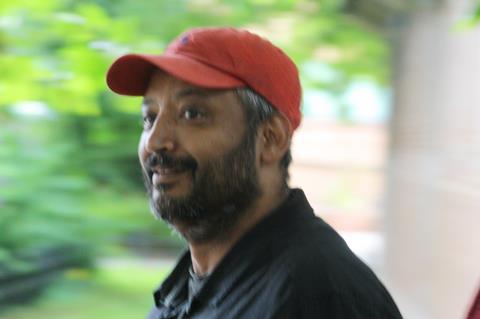A man has been jailed for falsely distributing halal meat to businesses in south Wales after the seizure of 2,840 kg of frozen meat in January 2019, and another has been prosecuted for the illegal sale of ‘smokies’.

Helim Miah, former owner of Universal Foods Wholesale Limited, was sentenced to four years and eight months in prison for fraudulent trading and breaching insolvency law. Noaf Rahman was given a two-year sentence, suspended for two years, and ordered to carry out 150 hours of unpaid work.
The pair sold halal-labelled chicken to Indian takeaways and restaurants across South Wales. However, investigations revealed that their suppliers often did not provide halal meat. Despite this, they continued to falsely market and distribute the chicken as halal to unsuspecting customers.
The investigation uncovered a catalogue of failings, including very poor food hygiene practices, evidence that some poultry had been defrosted and refrozen, finding chicken that was two years past its sell-by date, discovering temperature records were not kept up to date, evidence of pest activity at the business, and transporting unmarked meat in unclean vehicles that were not refrigerated or fit for purpose.

Following the investigation, Noaf Rahman pleaded guilty to three food hygiene offences, while Helim Miah, who pleaded not guilty, was later prosecuted at Merthyr Crown Court on April 11th, 2025.
During the two-week trial, Miah claimed he only ran Universal Food Wholesale Ltd using pre-processed halal chicken and that all on-site processing was handled by a separate company - Universal Poultry Ltd, run by Rahman.
Despite denying any involvement in the day-to-day processing of the business, Miah was found guilty of 10 charges including running a food business dishonestly, putting public health and trust at risk.
The court ruled Miah had falsely sold non-halal meat as halal, mislabelled expiry dates, ignored hygiene rules and failed to track food origins.
Judge Francis summed up the case by stressing that the fraud had a “clear societal impact”, explaining that if their customers knew that the meat they were buying wasn’t halal “they would have been horrified”.
Judge Francis stated: “The meat that was seized from you wasn’t safe, that is why it was taken from you and made into pet food. By failing to keep your customers safe, this was a disaster that was waiting to happen, and it is a miracle that it didn’t happen.”
Councillor Norma Mackie, Cabinet Member responsible for Shared Regulatory Services at Cardiff Council, said: “This story will be deeply concerning to our Muslim community. Eating halal is a requirement in the Islamic religion, and to take part in such a fraud shows the complete disregard these men had for the community.
“The investigation revealed extremely poor food hygiene conditions that could have caused serious harm to their customers.
“This case raises important questions about how food suppliers are held accountable for the accuracy of their halal claims, the need for greater consumer awareness, and the importance of verifying the authenticity of halal certifications. If anyone has concerns about the traceability of the food products they are buying from a wholesaler, please contact Shared Regulatory Services on 0300 123 6696.”
FSA secures £30,000 confiscation after illegal ‘smokie’ sales
The National Food Crime Unit (NFCU), run by the Food Standards Agency (FSA), has secured a £30,000 confiscation order for illegally produced smokies.
Ian Thomas, 46, of Gorseinon Road, Penllergaer, Swansea, was ordered to pay £31,250.51 for his involvement in the illegal slaughter, manufacture and distribution of ‘smokies’ across England, Wales, Northern Ireland and Scotland.
Thomas was ordered to pay the sum after a Proceeds of Crime Act confiscation hearing took place at Isleworth Crown Court in June.
‘Smokies’ are skin-on sheep or goat meat, produced by singeing the fleece off the unskinned carcass, giving it a golden-brown colour and smoky odour.
Production of smokies is illegal in the UK, with FSA highlighting that the process is “carried out in unapproved premises, which are unlikely to comply with the strict hygiene standards and requirements for meat or food preparation”.
“Food crime can have a serious impact which puts communities at risk, and it also undermines legitimate business and the investment and economic growth that go with it.”
David Williams, NFCU
David Williams, senior financial investigator at the NFCU, commented: “This case shows that we’re not just content to prosecute those who commit food crime, we will also pursue them to recover the profits they made from their illegal activities and to recoup taxpayers’ money spent on investigating and prosecuting them.
“Food crime can have a serious impact which puts communities at risk, and it also undermines legitimate business and the investment and economic growth that go with it.
“We support legitimate businesses, and we are proactively supporting them by disrupting and stopping the criminal element.”















